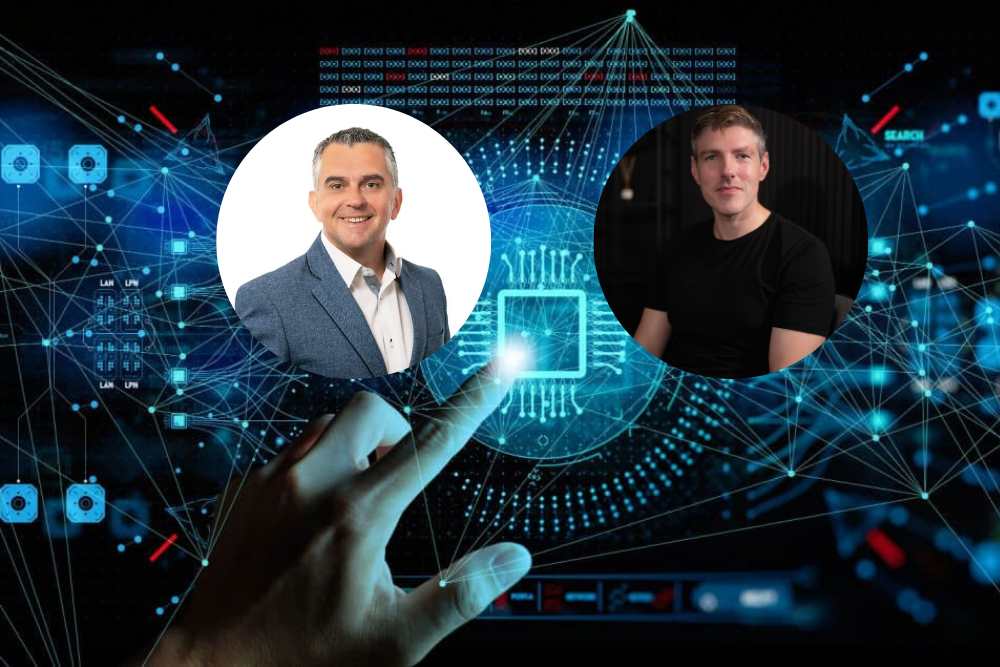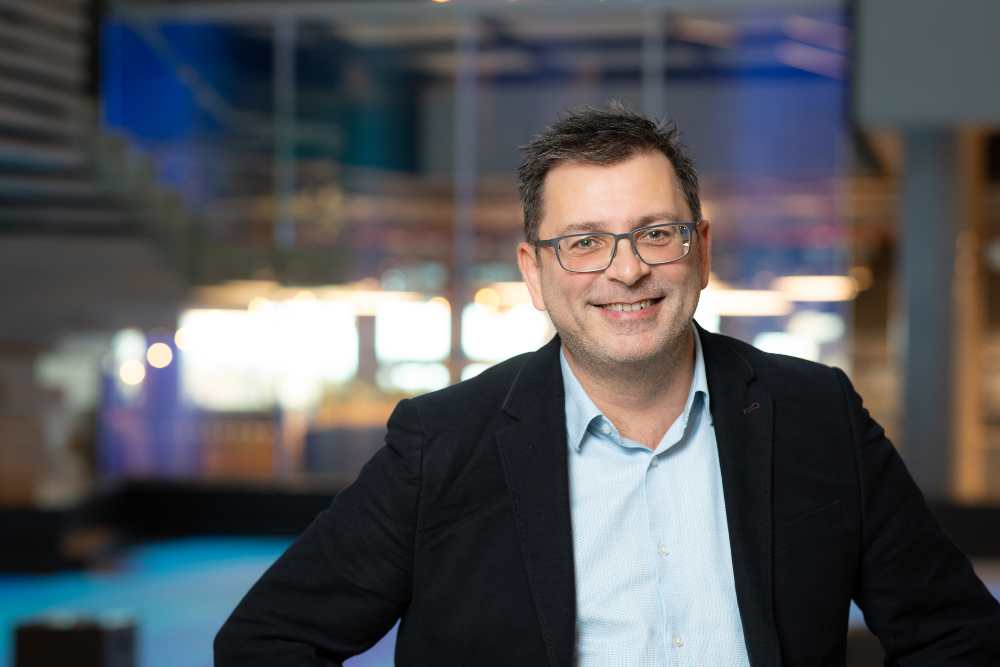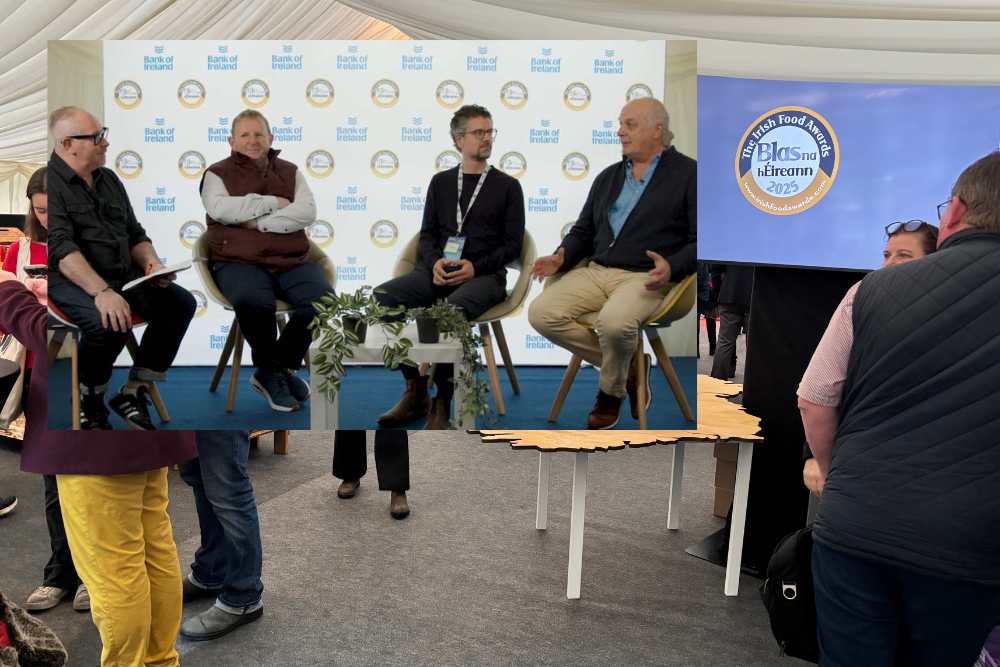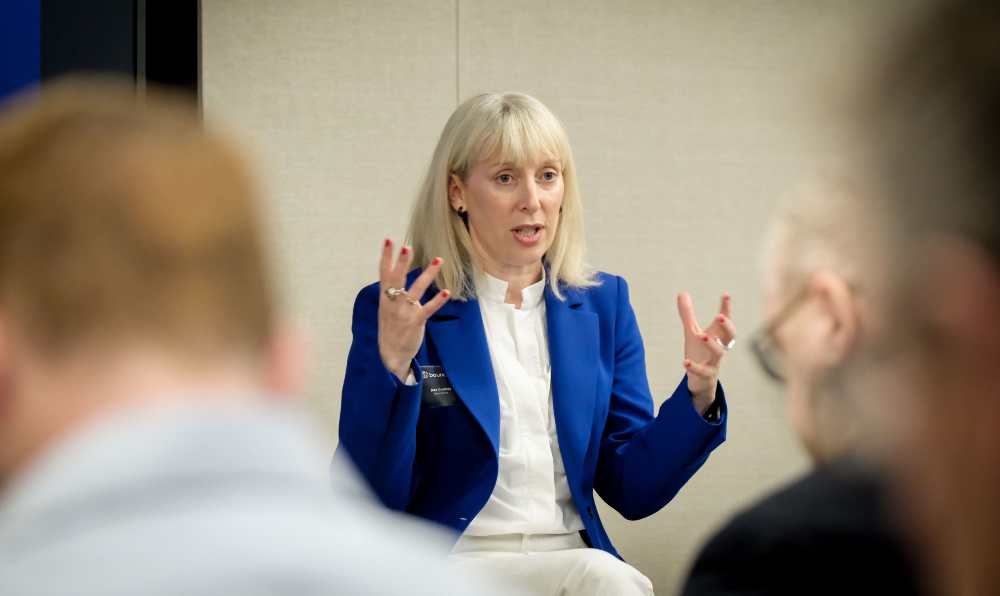Podcast Ep 291: Marie O’Connor, chief operations officer of Sogeti in Ireland, reveals how businesses should embrace AI in a productive way.
Across the world business owners are trying to decide how best to employ artificial intelligence (AI) in their organisation. Pardon the pun, but the ‘GenAI’ is already out of the bottle.
Whether their employers realise it or not, many workers are already using AI both privately in their personal lives and also productively at their desks to get tasks done. The challenge is how to ensure AI can be used safely and productively across the organisation and act as a super-charger for businesses.
“I think there’s a lot of hype – we’re at the top of the hype cycle on GenAI – and not all things will be true or equal. But I absolutely believe it’s transformative and will create opportunities”
Organisations are also possibly approaching AI in the wrong mindset. A recent Microsoft study found that Irish workers are increasingly viewing AI as a gateway to career advancement. However, while 91% of board-level executives report using AI at work, only 39% of non-managers do the same. So AI usage or availability is unevenly distributed.
A healthy approach to AI is needed
We caught up with Marie O’Connor, chief operations officer of Sogeti in Ireland, a Capgemini company, about how organisations can triumph in the AI age.
Her journey to COO of Sogeti is not your typical senior tech executive’s career journey having studied biological sciences and neuroscience at UCC. She joined Accenture as part of its graduate recruitment programme and found herself working in the area of systems integration.
“I was never going to be a computer scientist, so I was never in the detail of coding, but always on the edges of the IT side, understanding processes and how things work in practical, real-life applications.
“I moved to Sogeti about 10 years ago because it gave me the opportunity to be in more senior positions and to influence how we shape the business. That’s what I discovered I like to do, and based on that, I found my way into the COO role.”
Her background in neuroscience and biology might not be typical of a senior tech leader, but she asserts it boils down to logical thinking. “More than anything else, I’m a problem solver, and that’s what I do in the COO role. Those are transferable skills. What I did in my science degree was looking at whatever we were studying – be it the anatomy of the brain or whatever – and trying to break it down and understand how it functions. There are similarities there. That logical mindset and problem-solving ability fits well into what we do at Sogeti and consulting in general.
“At the core, we work with our customers to solve problems and help them achieve their goals. We’re an IT consultancy firm with capability across three or four main areas: quality engineering and software testing, business intelligence and data analytics, DevOps, cloud computing, and project management with business analysis capabilities. In terms of sectors, we work across all industries, but predominantly in Ireland we focus on financial services and public services. As part of the Capgemini group, we have that full bandwidth and capability to bring to our clients.”
A catalyst for change
She says the AI world could be the catalyst for organisations to leverage technology as a force-multiplier or equally important, give colleagues time to think and concentrate.
“When I was coming out of college, I used a computer as a typewriter – that’s what it was for me. I had no concept of where we would be now. I think we’re at that point of inflection where there’s uncertainty about which way things will go, but I have confidence that it will ultimately lead to more potential opportunities, just different ones.”
She believes most successful approach to AI is viewing it as technology that enhances human capability rather than replaces it. Companies should position AI to handle routine tasks while freeing employees to work on higher-value activities that require human judgment and creativity.
“There’s a whole area of prompt engineering that’s really important to understand. Gen AI is augmented, not intelligent in itself. You’re giving it instructions, and it can trawl through data faster than you or I can, giving what it believes is the most reasonable answer. The better your prompt, the better the response.
“I think it would be foolish to say we’ll ever go back to a world where you don’t need to leverage technology. But if we embrace it safely, it has huge potential. If there’s something that can give you back time – and I believe Gen AI is part of that – imagine what you can do with that time. Imagine how much more creative you can be in terms of solutions you deliver.
“There will always be organisations purely focused on productivity and cost optimisation, and part of that might be headcount reduction. But the vast majority of organisations we work with aren’t looking at it that way. It’s about getting better opportunities for the people working with them, because the value is with people.”
Think before you act with AI
She urges that before implementing any AI solution, organisations need robust governance frameworks and security policies. This includes understanding data sources, establishing guardrails for safe usage, and ensuring employees are trained on risks like uploading sensitive documents to public AI tools. The foundation of successful AI adoption is having clear policies that enable safe and consistent use across the organisation.
“That human element is still critical. You need to understand governance, guardrails, and security policies – no computer will figure that out for you. That’s people looking at challenges, ethical considerations, and making sure we put the right structures in place.
There’s also different levels of risk. Using AI to write emails or transcribe audio is straightforward with little risk. But using it to adjudicate an insurance claim is very different – you need different levels of controls and you’ll never want to completely remove the human element from ethical decisions.”
Rather than wholesale AI adoption, she says smart businesses begin with carefully selected use cases and pilot programmes. Firms should start with more human oversight than your end goal requires, then gradually build trust in the system as you refine and understand its capabilities. This approach allows you to fine-tune models, identify potential issues, and ensure the AI aligns with your business needs before scaling up.
“There are several fundamentals they need to get right. First, understanding governance and security policies so they can use it safely and consistently. You need to consider whether you’re using freely available large language models (LLMs) where you have no idea about the data source, or building something on your own data where you have more control.
“Data quality is really important. Having your governance and security policies in place, and ensuring your infrastructure can support what you want to do with AI – cloud infrastructures usually work better because they can scale faster.
Then it comes down to use cases. You need to be selective at the start – pilot and trial to see if the tool fits your organisation. Start with more human interaction than your end goal, with checks and balances through the process. For example, if you’re optimising supply chain logistics, you want to be involved in the first pilot to ensure it doesn’t make inappropriate decisions and to fine-tune the model.
The power of the prompts
She reiterates the point that prompt engineering is going to be a critical business skill and that the quality of AI output directly correlates to the quality of input instructions.
O’Connor says organisations need to invest in developing prompt engineering skills across their teams. She says understanding how to effectively communicate with AI tools – knowing how to ask the right questions and provide clear context – is becoming as important as traditional technical skills.
“I look at Gen AI as doing the initial draft, maybe even draft two, because it’s brilliant at refining and changing tone quickly. But the final editor – the editor in chief – is still me. I still need to be confident in what’s going out.
“With agentic AI it becomes different because that’s more goal-led rather than instruction-led. But there should still be final checks and balances. It will speed up time to get things done, but it shouldn’t remove all human input. If it’s something I need to stand behind, I need to be comfortable with what it’s saying.
“As you get more comfortable with the prompts and consistency of responses, your checking might lessen and you build more trust – just like building trust with people you work with.”
So perhaps the future of AI is not the doom and gloom some would have us believe?
“I really believe that. If you look back, while we have little blips, most advances in technology have resulted in more people moving into computer science and technology, finding new jobs and ways to do things we never imagined possible. Who would have thought we could remote work years ago? Or that people’s income would come from online content generation?
“I think there’s a lot of hype – we’re at the top of the hype cycle on GenAI – and not all things will be true or equal. But I absolutely believe it’s transformative and will create opportunities. It’s about seeing those opportunities and understanding how we can best use it in whatever situation we’re in, whether business or personal. There are advantages and ways GenAI can benefit us.”
-
Bank of Ireland is welcoming new customers every day – funding investments, working capital and expansions across multiple sectors. To learn more, click here
-
For support in challenging times, click here
-
Listen to the ThinkBusiness Podcast for business insights and inspiration. All episodes are here. You can also listen to the Podcast on:
-
Spotify
-
SoundCloud
-
Apple






